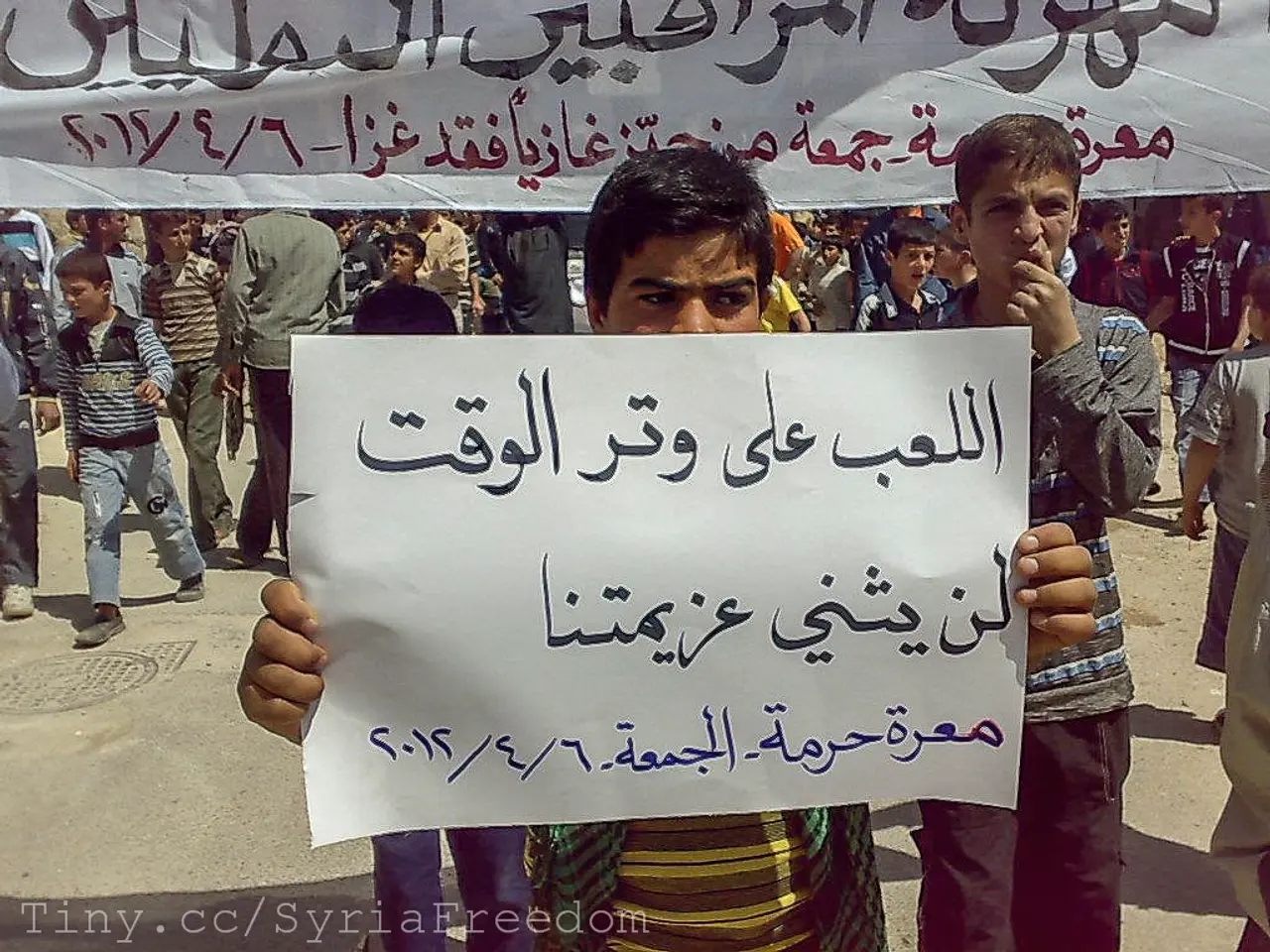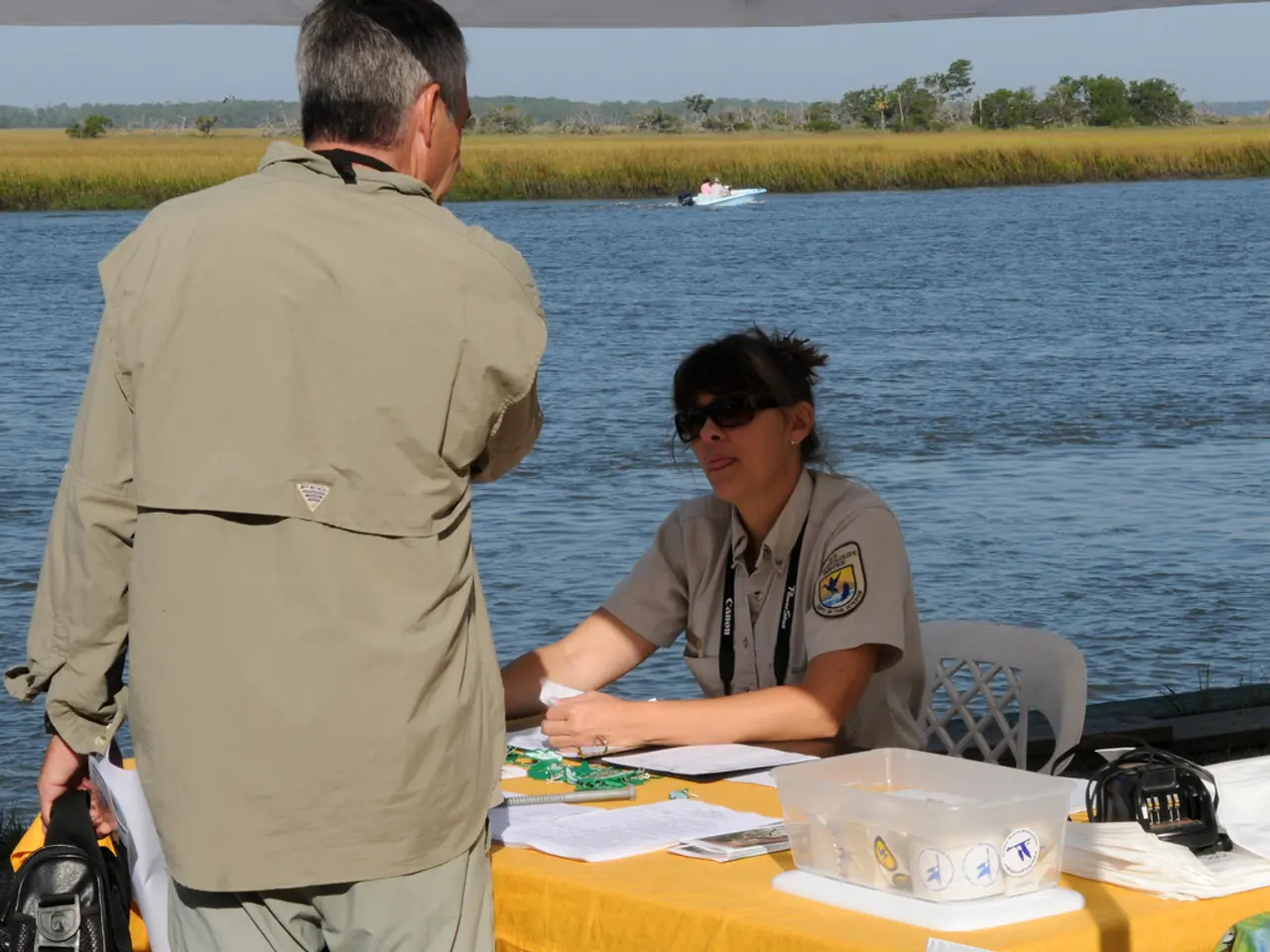Tensions at the Myanmar border could lead to fishermen from Bangladesh being abducted.
Conflicts between the Arakan Army (AA), an ethnic armed group in Myanmar's Rakhine State, and Bangladesh's military have led to increased tensions along the Naf River border. The AA's growing dominance in border regions has resulted in hostile actions towards Bangladeshi fishermen, adversely affecting their safety and livelihood.
The AA, which controls 14 of Rakhine state's 17 townships, as well as Paletwa Township in neighboring Chin State, has assumed control over parts of the border area near Maungdaw. This has disrupted the historical management of the maritime boundary, which was previously overseen by Myanmar's military.
As a result, incidents involving the abduction of Bangladeshi fishermen by the AA have become frequent. Mohammad Hussain and Robiul Hassan, two fishermen who were abducted by the AA, express fear due to the presence of the AA across Bangladesh's maritime border with Myanmar. Reports of such abductions have become relatively common.
The AA views illegal fishermen as encroaching on their territory without permission, according to Thomas Kean, senior consultant for Myanmar and Bangladesh at International Crisis Group. Kean also stated that the AA considers its actions as law enforcement, not abduction.
The Rohingya crisis in August 2017 led to a ban on fishing in the Naf River. Some Bangladeshi fishermen, due to the ban in one part of the river, have been working close to or crossing the Myanmar maritime border. Despite repeated warnings from Bangladeshi authorities, these incidents continue, causing concern for the safety and livelihood of the fishermen.
Informal talks between Bangladeshi officials and the AA started in December 2024 aiming to address cross-border security issues and reduce tensions. However, significant challenges remain due to the contested control and varying claims of authority.
The Border Guard Bangladesh helped rescue the three fishermen after two days. Mohammad Siddiqui, a fisherman in Teknaf, Bangladesh, earns his livelihood fishing in the Naf River. In May, a group of AA fighters abducted Siddiqui and two other fishermen. During their imprisonment, some AA members reportedly got drunk and beat the fishermen.
SK Ahsan Uddin, a Bangladesh government official, stated that Bangladeshi fishermen have occasionally drifted into Myanmar's territory to fish but have been repeatedly warned against it for their own safety. Khandakar Tahmid Rejwan, an analyst at the Centre for Alternatives, suggests that Bangladesh should begin an informal but strong understanding and engagement with the AA to ensure the safety of its people along the border.
The ban on fishing in Bangladesh's part of the Naf River was lifted in February. The Rohingya, a mostly Muslim ethnic minority based in Rakhine state who were persecuted and driven out of their homes by Myanmar's military, continue to live in crowded camps across the border in Bangladesh.
In summary, the Arakan Army's growing dominance in border regions has led to increased hostile actions toward Bangladeshi fishermen, adversely impacting their safety and contributing to broader diplomatic tensions between Bangladesh and Myanmar's military-backed government.
The Arakan Army, controlling multiple townships in Rakhine and Chin States, has disrupted the historical management of the maritime boundary with Bangladesh, leading to frequent abductions of Bangladeshi fishermen by the AA, who view these activities as law enforcement versus abduction. This situation has caused concern for the safety and livelihood of the fishermen, with Mohammad Hussain and Robiul Hassan among those expressing fear.
Informal talks between Bangladeshi officials and the AA aim to address cross-border security issues and reduce tensions, but significant challenges remain due to the contested control and varying claims of authority. Bangladeshi fishermen, such as Mohammad Siddiqui, continue to be warned against drifting into Myanmar's territory, as they have experienced brutal treatment while being imprisoned by the AA.
The Rohingya crisis in 2017 led to a ban on fishing in the Naf River, forcing some Bangladeshi fishermen to work near or cross the Myanmar border. Despite the lifting of the ban in February, the Rohingya, a persecuted Muslim ethnic minority, continue to live in crowded camps across the border.
In light of these ongoing issues, analyst Khandakar Tahmid Rejwan suggests Bangladesh should engage with the AA informally but strongly to ensure the safety of its people along the border, while SK Ahsan Uddin, a Bangladesh government official, emphasizes the importance of respecting Myanmar's territorial waters for the safety of Bangladeshi fishermen.





